Key takeaways:
- Self-doubt is a natural part of leadership but can be transformed into growth opportunities through vulnerability and open communication.
- Effective leadership fosters collaboration and empowerment, leading to trust and innovative outcomes within teams.
- Embracing vulnerability and seeking feedback are crucial strategies for building leadership confidence and creating a supportive team environment.
- Personal experiences and self-reflection can significantly reduce self-doubt and enhance leadership effectiveness.
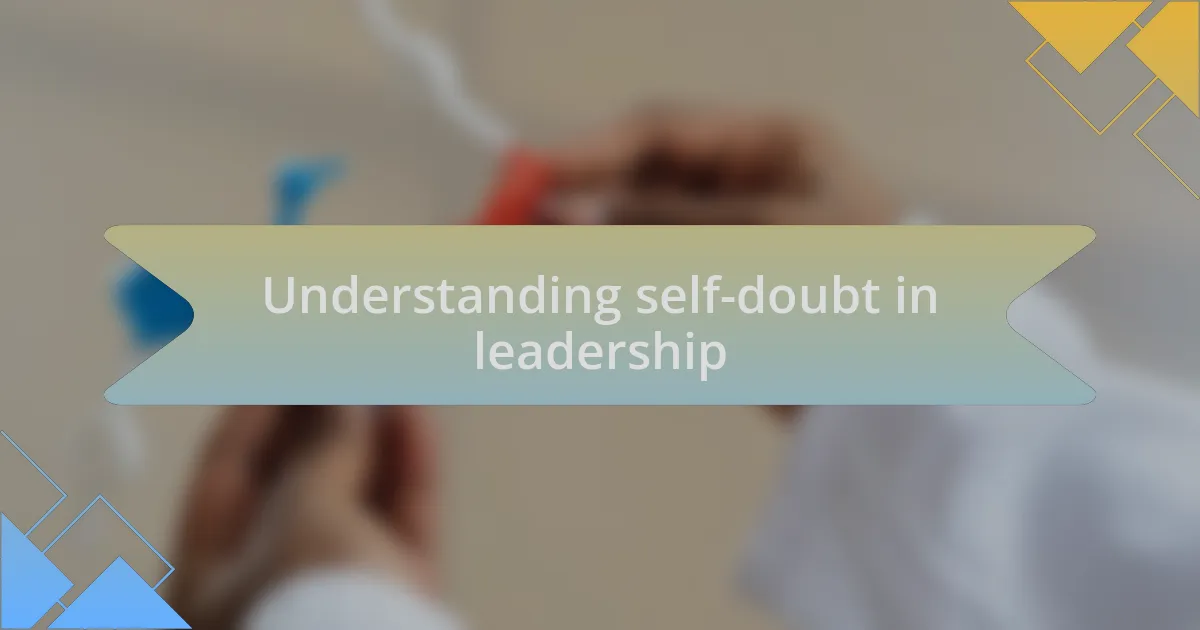
Understanding self-doubt in leadership
Self-doubt in leadership often emerges when we begin to question our abilities or the validity of our decisions. I remember a time when I hesitated to voice my ideas during a critical project meeting, fearing they might be dismissed. This experience taught me that such doubts are natural, but they can also hinder progress if not addressed.
As leaders, we tend to hold ourselves to high standards, which can amplify feelings of inadequacy. I often found myself asking, “Am I really the right person for this role?” This internal dialogue can create a heavy burden, yet acknowledging it can be the first step toward growth. When we confront our self-doubt, we create opportunities for self-reflection and increased resilience.
It’s crucial to understand that self-doubt isn’t an indication of weakness; rather, it’s a sign of our commitment to improvement. For instance, after recognizing my doubts, I started seeking feedback from my team, which opened up channels of communication I didn’t know existed. This practice not only alleviated my concerns but also strengthened our collective efforts, proving that vulnerability can lead to empowerment in leadership.
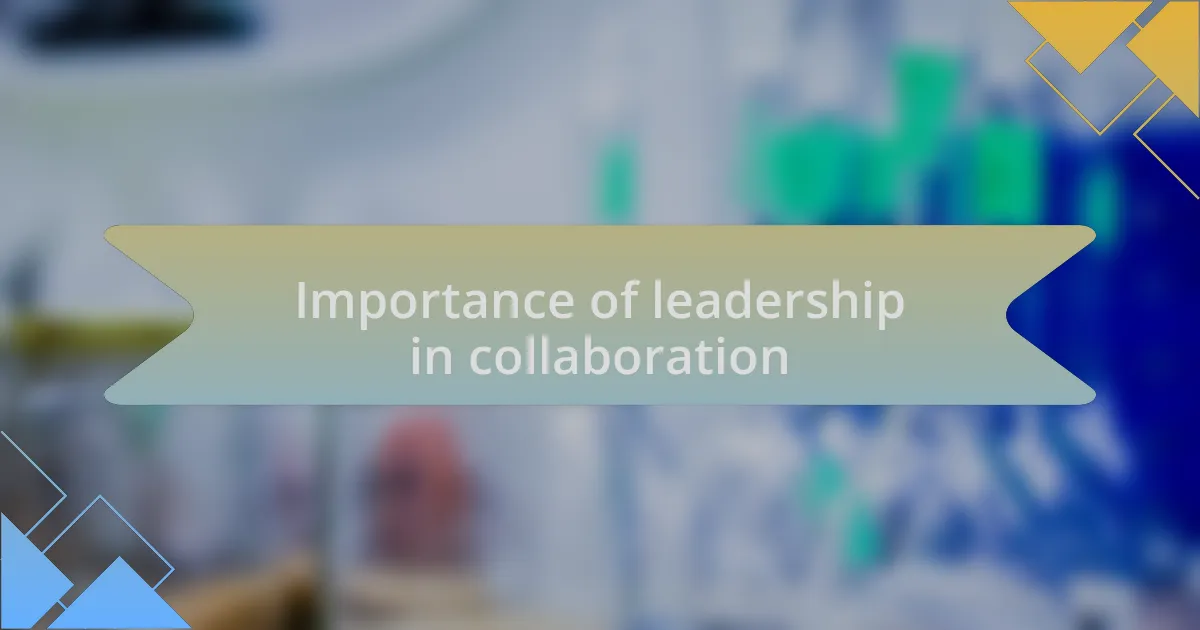
Importance of leadership in collaboration
Effective leadership is pivotal in fostering collaboration. I’ve noticed that when leaders actively engage with their teams, it creates an environment where everyone feels valued and motivated. Think about it: how often have you been inspired by a leader who genuinely listens and encourages open dialogue?
In my experience, the trust that develops through strong leadership directly impacts collaboration outcomes. When I led an international project, I prioritized transparent communication, which helped break down barriers between team members from different cultures. This openness not only facilitated smoother interactions but also sparked innovative ideas that transformed our approach.
Moreover, a strong leader empowers their team to take ownership of their roles, which is crucial in collaborative environments. I’ve seen firsthand how delegating responsibility fosters a sense of pride among team members. It raises the question: when people feel trusted, do they not rise to the occasion and deliver their best work? Absolutely. Empowerment drives engagement, and engaged teams are the backbone of any successful collaborative effort.
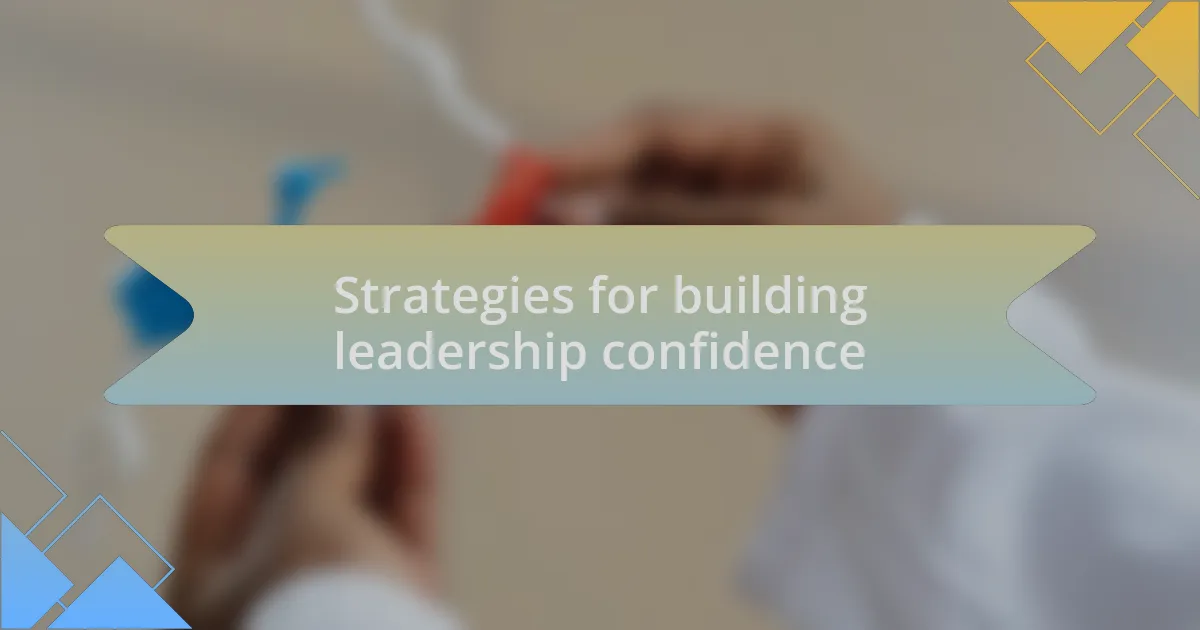
Strategies for building leadership confidence
One effective strategy I’ve found in building leadership confidence is embracing vulnerability. Early in my career, I was hesitant to show any signs of uncertainty. However, when I shared my doubts with my team, it surprisingly strengthened our bond. By recognizing my own limitations, I invited others to share theirs, creating a safe space for open conversations. Have you ever considered how vulnerability might actually enhance your credibility as a leader?
Another powerful tactic is continuous learning. I make it a point to seek feedback regularly, both from peers and team members. I remember when a colleague highlighted my need for clearer guidance in a project; instead of feeling defensive, I took their feedback to heart. This experience taught me that openness to feedback not only improves my leadership skills but also cultivates an atmosphere of trust. How often do you find yourself seeking out constructive criticism?
Lastly, visualization plays a crucial role in my journey. Before stepping into a major meeting, I visualize myself leading with confidence and clarity. This mental preparation creates a sense of readiness that is palpable to my team. I’ve learned that our mindset directly influences our actions. So, how do you prepare yourself mentally before a leadership challenge? It’s a simple yet transformative practice that can significantly boost your confidence.
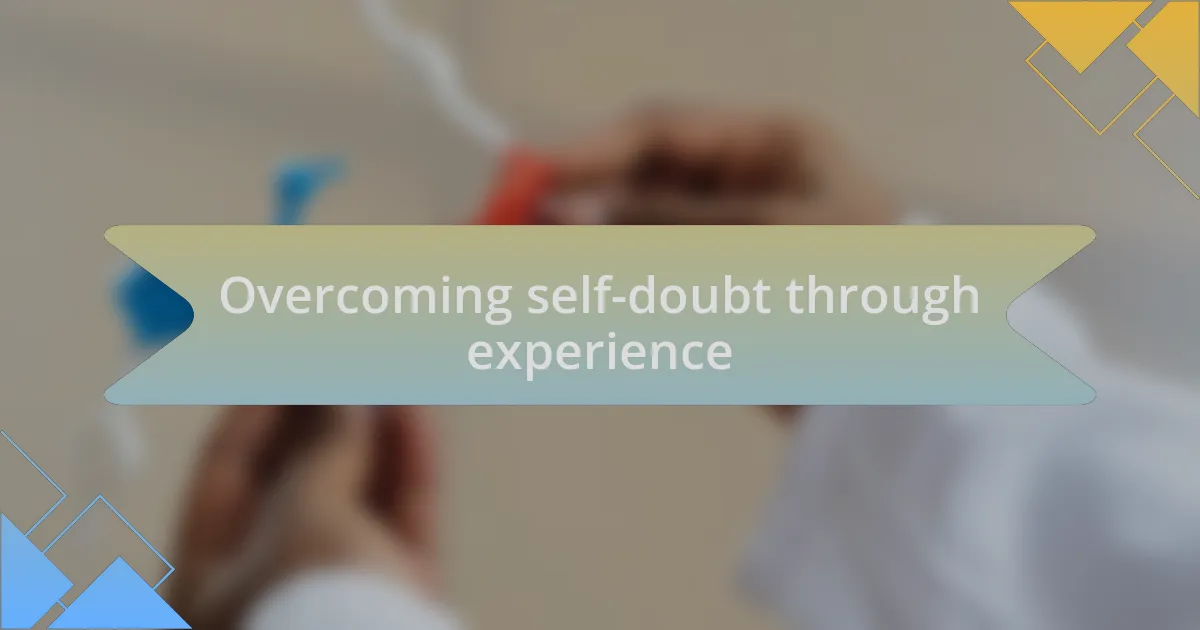
Overcoming self-doubt through experience
Overcoming self-doubt through experience has been a journey filled with valuable lessons. I recall a project where I was tasked with leading a diverse team across different cultures. Initially, I felt overwhelmed, fearing my decisions might not resonate with everyone. However, as we navigated challenges together, I realized that my unique perspective was a strength. This experience taught me that embracing our individual experiences can transform self-doubt into a powerful source of leadership.
Another pivotal moment in my career occurred during a critical presentation to a European research consortium. I stood there, battling my internal dialogue of doubt. But as I began sharing a personal story about a past setback, I noticed the room’s dynamic shift. I felt a wave of relief and connection wash over me, proving that vulnerability can be a bridge rather than a barrier. Have you ever found that sharing your experiences can foster stronger relationships and lessen self-doubt?
Through hands-on experiences, I’ve cultivated a deeper understanding of my leadership style. Each misstep or challenge added to my toolkit, allowing me to build resilience. I vividly remember a time I had to pivot a project mid-way due to unexpected results. Instead of viewing that as a failure, I embraced it as an opportunity to adapt and rethink our approach. This shift in perspective not only eradicated self-doubt but also reinforced my ability to lead through uncertainty. What experiences have shaped your perspective on leadership?
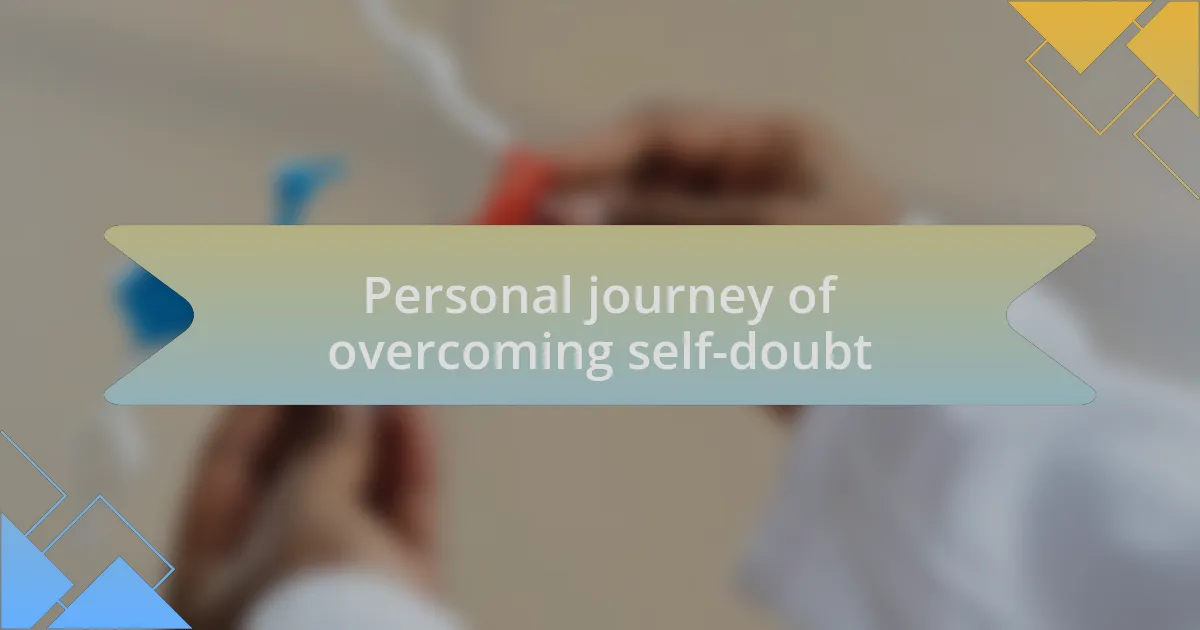
Personal journey of overcoming self-doubt
There was a time when I found myself fretting over my ability to lead effectively in an international project meeting. I vividly remember sitting there, questioning my insights and fearing judgment from colleagues. But then, I took a moment to reflect on my journey—the late nights spent studying different cultures and the lessons learned from past collaborations. Suddenly, that doubt transformed into a sense of responsibility. Have you ever felt that moment where self-reflection turns apprehension into motivation?
One significant instance of overcoming self-doubt occurred during a brainstorming session where my ideas were met with silence. For a moment, I almost withdrew, convinced my contributions were irrelevant. But instead of retreating, I decided to openly seek feedback. In doing so, I found not only encouragement but also valuable insights that enriched the discussion. It’s fascinating how vulnerability can invite collaboration, don’t you think?
I still remember the first time I led a team-building workshop—my heart raced with anxiety as I contemplated whether my approach would resonate. As I shared my own struggles with teamwork, the room lightened. Participants started to open up about their experiences, and I realized that through shared stories, we created an environment of trust. It dawned on me that embracing imperfections is essential in forging genuine connections. Have you noticed how authenticity can spark dialogue and lessen the weight of self-doubt?